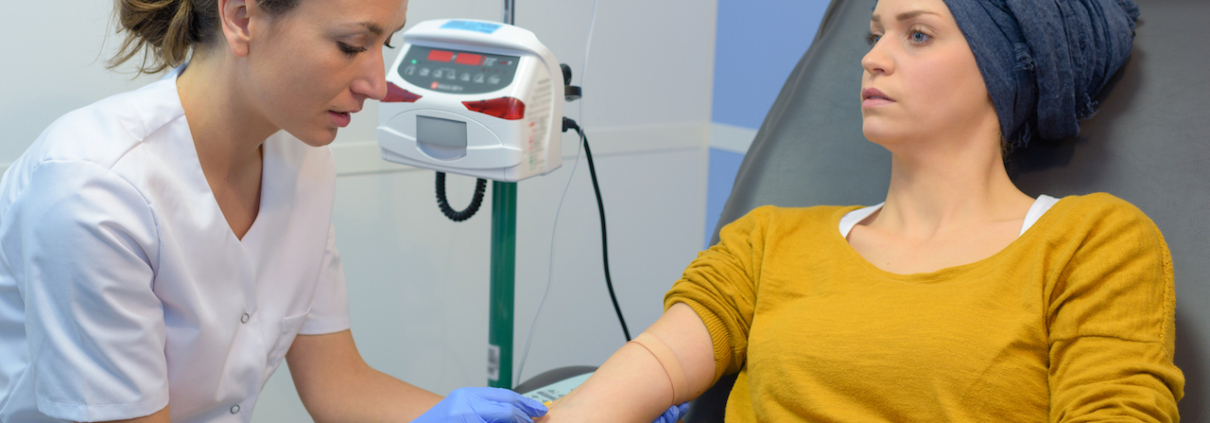Ways to Prevent Infection During Chemotherapy Treatments
Chemotherapy can lower a patient’s white blood cell count. Cancers can also make existing white blood cells less effective at fighting bacteria and viruses.
This means that, for chemotherapy patients, even common infections can be much harder to treat, and a lot more dangerous – or even fatal.
In this post we’ll discuss some ways to prevent infection during chemotherapy treatments. To begin with, we’ll explore some of the precautions patients can take to prevent infection during their chemotherapy. We’ll then look at the measures hospitals and healthcare settings can take to prevent and control infection among their most vulnerable patients.
Ways to Prevent Infection During Chemotherapy – For Patients
First, let’s take a look at some of the precautions chemotherapy patients could take to reduce their infection risk.
These are all general ideas for how you can lower your risk of infection. Consult your oncologist for expert advice that’s tailored to you and your needs.
Avoid Crowds or Certain Locations
While undergoing chemotherapy, your oncologist may advise you to avoid crowds, particularly during peak flu seasons. Infections spread more easily in crowded enclosed spaces than they do in outdoor spaces.
Depending on your white blood cell count, your oncologist might advise you to avoid specific locations and situations, such as public transport, supermarkets, cinemas, and so on. They may also advise you on precautions you can take if you do need to go to a crowded place, such as wearing PPE.
Also, for the duration of your chemotherapy, you should avoid spending time with anyone who might carry an infection risk – even if they’re your closest relatives. Sick people could pass on an infection to you. But there’s also the risk that you’ll pass on an infection to them.
Dietary Risks
Food can be a major source of infection. Throughout your chemotherapy, you should take extra precautions around the food you eat:
- Don’t share plates or cutlery with others.
- Inspect all fruit and vegetables for signs of spoiling, and thoroughly wash all produce before you eat it.
- Make sure that any meat, seafood, and eggs you eat are fully cooked.
- Avoid eating out, especially at buffets where food is left out for hours.
- Avoid eating some foods entirely, including honey, sushi, blue cheese, and brie.
Pets and Animals
Some infections can be transmitted from animals to people.
Toxoplasmosis is the major risk you’ll face during your chemotherapy.
If you have a cat, you should avoid changing their litter for the duration of your treatment. If you have to change their litter, wear gloves while you do so, and wash your hands thoroughly afterwards.
And speaking of cats, it’s a good idea to keep them indoors during your treatment. They could pick up all sorts of pathogens while they’re out, particularly if they catch any birds or mice.
If you have a dog, ask someone else to walk them. Or at the very least, wear gloves when picking up their droppings, and use hand sanitiser immediately afterwards.
Finally, don’t get any new animals during your treatment, especially not young animals. Not only are they more likely to carry infections, they’re also a lot of work. And during your chemotherapy, you’ll want to take things as easy as possible.
Ways to Prevent Infection During Chemotherapy Treatment – For Hospitals
Chemotherapy patients can take precautions to lower their risk of infection during chemotherapy. But hospitals also have a responsibility to prevent and control infection among all of their patients, particularly the most vulnerable ones.
To achieve this, all healthcare staff must follow the 10 standard infection control precautions. These include:
- Patient placement, and assessing a patient’s infection risk. There’s a reason why chemotherapy treatments take place in a dedicated oncology department. It ensures that chemotherapy patients are kept separate from patients who might carry an infection risk.
- Hand hygiene – All staff should thoroughly wash their hands at certain key points, including both before and after interacting with a patient and their immediate surroundings. They should also follow a specific hand cleaning technique.
- PPE – Staff should wear the appropriate PPE for each occasion. They should also follow certain procedures for storing, putting on, taking off, and disposing of PPE.
Other Measures to Prevent Infection During Chemotherapy
Comprehensive cleaning protocols and procedures can play a huge role in preventing and controlling infection in all healthcare settings. The protocols should target the areas where infections are most likely to take hold and thrive. They should also recommend the most effective cleaning products and the correct procedures for using them.
A hospital grade air purifier can help you quickly and thoroughly improve the air quality in your oncology department, which can prevent infection from airborne pathogens.
Our Blueair HealthProtectTM air purifiers are fitted with advanced HEPASilent technology. This is capable of catching 99.97% of particles down to 0.1 microns. This includes the viruses and bacteria which carry the greatest infection risks for chemotherapy patients.
Take a look at our specialist air purification systems for hospitals.



